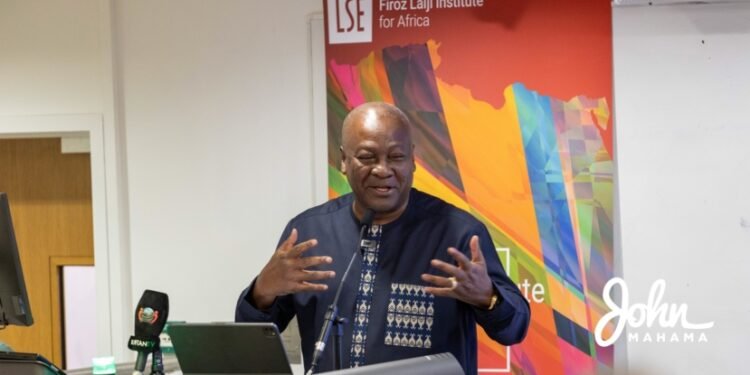News
IPPG Urges Mahama to Reconsider Emissions Levy for Climate Action
Published
12 months agoon
By
M N Ridwan
The International Perspective for Policy and Governance (IPPG) has called on former President John Dramani Mahama and the National Democratic Congress (NDC) to reconsider their stance on scrapping the emissions levy, suggesting that it could play a crucial role in addressing Ghana’s climate challenges.
In a new policy brief, IPPG emphasizes that although the NDC’s proposal to eliminate various taxes aims to ease economic pressures on citizens, scrapping the emissions levy could undermine the country’s climate goals.
Instead, the group recommends retaining the levy and using its revenues to fund climate action initiatives, in line with the NDC’s commitments to green growth and renewable energy.
The emissions levy, introduced in December 2023 under the Emissions Levy Act (Act 1112), targets carbon dioxide emissions from sectors such as construction, manufacturing, mining, and transportation.
However, the levy’s potential has been limited by a lack of a clear mechanism to reinvest the funds into climate projects.
According to Mr. Seth Owusu-Mante, Research Fellow at IPPG, this oversight diminishes the transformative impact that a carbon tax can have on climate mitigation and clean energy development.
Why the Emissions Levy Matters
Ghana faces severe climate challenges, with the agricultural, health, and infrastructure sectors bearing the brunt of the effects.
Rural communities, women, and marginalized groups are particularly vulnerable to the negative impacts of climate change, such as erratic rainfall, rising temperatures, and extreme weather events.
The NDC’s manifesto acknowledges these vulnerabilities and outlines actions to address climate risks.
Retaining the emissions levy would allow the government to create a climate fund that can provide consistent and local funding for climate action.
This fund would support the NDC’s climate policies and reduce Ghana’s dependence on foreign aid, empowering the country to meet its climate goals and strengthen its resilience.

Key Recommendations from IPPG
The IPPG’s policy brief outlines several strategic recommendations to make the emissions levy more effective:
- Cross-Sectoral Climate Resilience Initiatives: The revenue from the levy could support climate-smart agriculture, flood-resistant infrastructure, and public health programs aimed at mitigating climate-related diseases.
- Incentivizing Green Practices: A climate fund could offer incentives for businesses to adopt eco-friendly practices, such as grants and tax rebates for using electric vehicles or installing solar panels.
- Scaling Renewable Energy Projects: The fund could support large-scale renewable energy projects, such as solar and wind farms, to reduce emissions and improve energy access across Ghana.
By repurposing the emissions levy as a climate fund, Ghana could ensure that climate adaptation and mitigation projects are well funded and supported, helping the country transition to a low-carbon economy while meeting its development objectives.
Related News
You may like


No More Takeaway Packs Mahama Plans Styrofoam Ban


Mahama Signs GH¢1 Fuel Levy Into Law


Mahama Remembers Childhood Days with Asantehene: “They Sent Us for Ice Cream”


24-Hour Economy or 24-Hour Intimidation? Ahiagbah Questions Mahama


Mahama Sounds Alarm on SHS Indiscipline, Calls for National Unity


Mahama to MMDCEs: Clean Up Your Districts or Lose Your Jobs















